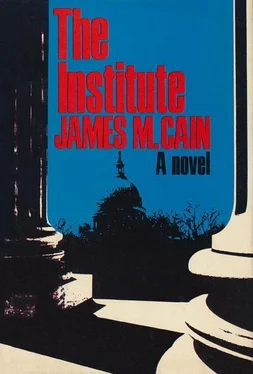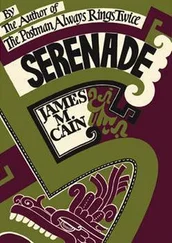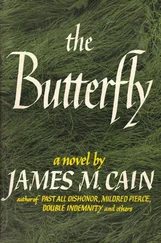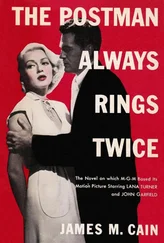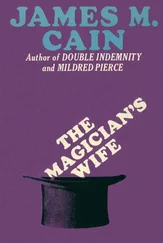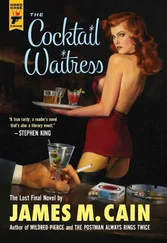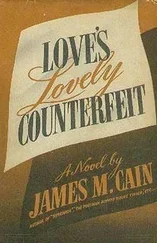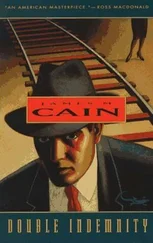“Which made her aristocracy?”
“I suppose so.”
“And you’re aristocracy, too?”
“But I don’t do much about it.”
“Did she?”
“No, but it still meant something to her.”
Hortense stared at the picture, then went on. “O.K., so you grew up here where we are, in College Park, is that it?”
“Marlboro, the county seat.”
“Oh. Then you moved—?”
“To College Park, here to this apartment, when I entered college — the university, actually. Then football, post-graduate study, and a Ph.D. for me, and all kinds of investments for her. She wasn’t grasping or avaricious, at least as far as I know; but money just gravitated to her, all the time. She made more than my father ever saw, and he didn’t do too badly. She left me comfortable, even without a job. When she died, it was the worst blow of my life.”
“When was this?”
“Little over a year ago.”
“Were you in love with her?”
“What do you mean, in love with her?”
“I mean, did you like to kiss her?”
“Well, she was my mother, wasn’t she?”
“Was it her idea to rip the neck of your jersey?”
“What are you getting at?”
She didn’t answer at once, but stared for several moments. Then she asked: “How many girls have you had?”
“Why — one or two, of course.”
“You were successful with them?”
“Listen, if they want to, they want to, and that being the case, they do. Use your own judgment.”
“How many?”
“No normal guy ever had one before this one now. She’s always the first and only.”
“That’s a very sweet thing to hear you say. How many?”
“Three.”
“And they were? Who was the first one?”
“Little waitress in Ocean City my summer as a lifeguard.”
“Where did you do it with her?”
“On the sand dune up the beach.”
“And the second?”
“A student during my sophomore year at the university.”
“Where did you do it with her?”
“Her family had a beach house on the bay below Annapolis. We would drive down there at night.”
“What did your mother say about her?”
“I don’t think my mother knew about her — not from me, anyway. I never told her.”
“You must have got in quite late.”
“I lived at the fraternity house.”
“Who was number three?”
“A woman quite a lot older than I was, while I was studying for my doctorate. She was a graduate student, too. The subject of marriage came up, but she began getting on my nerves. After she wound up her year, she went back to Chicago and married a guy out there, head of some research bureau.”
“Got on your nerves? How?”
“Does it matter?”
“If I knew how she did, I might manage not to.”
“It was over my dissertation. She didn’t accept the idea I had for it.”
“What was it about?”
“Shakespeare’s sonnets.”
“What was it about them that she wouldn’t accept? We studied them at Delaware. I thought they were wonderful.”
“When I’d worked on them awhile, I got a creepy feeling, as though the words weren’t just words, but a kind of scrim, with someone back of it, talking, someone I could hear but couldn’t see. Suddenly I knew who it was: a boy, a brilliant, gifted boy who was writing these things — not all of them, of course, but the 154 in the Thorpe collection. When I got that far, some mysteries began to clear up. She wouldn’t believe it, though, kept insisting that no boy could have written them. She kept saying, ‘You’ll make a fool of yourself.’ Then things went sour.”
“You make me feel creepy, too.”
I ticked off a few things that tied in with what I thought, and suddenly she asked: “What mysteries?”
“Well, for one, the identity of the ‘Mr. W.H.’ whom Thorpe, the publisher, dedicated the collection to, as ‘the true begetter of these sonnets.’ It has been assumed by all scholars that this was some patron, one of the noble lords Shakespeare knew, and that possibly there was a homosexual relationship there. But if he was talking to himself, if was a youth in love with his own beauty, as revealed to him in his mirror, if this was a not unusual case of teenage narcissism, ‘Mr. W.H.’ might well be Will Himself.”
“Well, I can believe it. What other mysteries?”
“One, mainly. The identity of the ‘Dark Woman’.”
“Oh that’s right. Her.”
“If these things were the work of a boy who started perhaps at fifteen, and three years had gone by since ‘first your eye I eyed,’ as it says in Sonnet 104, then he’s now nearly eighteen, and a big event is due in his life.”
“What big event?”
“You know. Of course you do.”
“His marriage, you mean?”
“His shotgun marriage.”
“Oh, that’s right. She was knocked up, but good.”
“By a funny coincidence, the Dark Woman enters the picture in Sonnet 127: ‘In the old age black was not counted fair—’ ”
“ ‘Or if it were, it bore not beauty’s name’ — Well, I’ll be damned! It all comes out even!”
“Hortense, you mean you believe it?”
“Why aren’t you writing this up?”
“I did write it up. My dissertation’s about it.”
“I mean, really write it up.”
“I hadn’t thought about it.”
I got her to bed, and she lay a long time in my arms. When at last she stirred, she whispered: “I’m sorry, I fell asleep.”
“It makes me happy that you did.”
“Then act happy!”
“There’s a certain preliminary—?”
“Here I come!”
Four days later Wilmington rang me. Richard Garrett called to say he was back from London and to ask if I could be at his office the next morning at ten o’clock. I said I could, as I’d been getting ready using the time to good advantage. I’d wound up my academic year, met with my teaching assistants, and turned them over to Dr. Shad well, my department head. Then I had my last class. They didn’t know I was leaving, but I did, and it shook me up. They formed a line to say goodbye for the semester, the boys shaking hands and the girls giving kisses. One of them had spent the whole year showing her legs to me from the front row, and she gave me a kiss, too. I was tempted to ask her name and where she lived, but didn’t. I would hear from her later.
In addition to all this, I had prepped a bit on the institute, with phone calls to federal departments, for fill-in stuff I needed, to be sharp and have it down pat when I met Mr. Garrett again. The nights I spent with Hortense. She would let herself in and we would lie in the dark, whispering.
When he called, that’s what we were doing. “I dread it,” I confessed to her. “I dread seeing him more than anything I can remember. Know what I dread most of all?”
“Not having me along?”
“That handshake with him that I’ll have to go through with. I feel like the guy in that story, an O. Henry story I guess, who couldn’t drink with the man he—”
“He what?”
“Took advantage of.”
“As you took advantage of me?”
“Okay then I did.”
“The story was ‘Cabbages and Kings,’ and the man couldn’t drink with the man he blackmailed. As you blackmailed me.”
“Lady, you blackmailed yourself.”
“You don’t have to go, Lloyd.”
“Well, I do have to if—”
“Yeah? If?”
“Look, we made a decision, and—”
That’s what was said, pretty gritty if we meant it. Yet ten minutes later there we were holding close, and the next morning I left for Wilmington. Miss Immelman received me as before, ushering me into the same office and saying Mr. Garrett expected me. I walked around, so nervous that I was jittery, still thinking about that handshake. But when he came in, he waved me to a chair with a bandaged right hand, and I knew why right away. He motioned to it with his left, saying: “Jabbed it last night chopping up ice for a friend. I detest cubes, like to serve rocks in lumps; so I freeze water in containers and bang into it with a pick. But sometimes I make a mislick — which I did last night but good.”
Читать дальше
